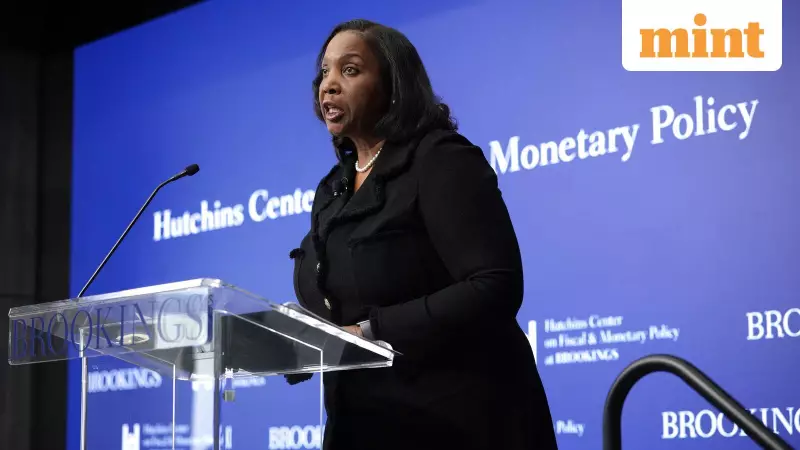
Unprecedented Challenge to Federal Reserve Independence
In a historic move that has sent shockwaves through financial circles, former President Donald Trump has initiated the first-ever attempt by an American president to sack a sitting governor of the Federal Reserve. The target is Lisa Cook, a member of the Board of Governors, whom Trump claims made misstatements in her mortgage applications. This development represents a significant escalation in Trump's ongoing campaign against the central bank's independence.
The credibility of America's central bank has long been considered one of the fundamental pillars supporting the country's world-beating economy. Yet, despite the gravity of this constitutional challenge, financial markets have responded with surprising equanimity. Dollar assets experienced only minor weakening following the announcement, suggesting that investors remain cautiously optimistic about the outcome.
The Real Agenda Behind the Legal Battle
While the official justification centers on alleged mortgage fraud, most observers recognize this as a thinly veiled political maneuver. Federal Reserve governors can only be removed for cause, and Cook, who hasn't faced any formal charges, has vowed to contest her dismissal in court. The situation bears the hallmarks of a show trial designed to send a clear message to all Fed board members: Trump intends to impose his preference for lower interest rates.
On August 25th, Trump explicitly stated his intention to fire Cook, and by the following day, he was already boasting that "We'll have a majority [on the board] very shortly." This transparent power grab aims to reshape the Fed's monetary policy committee according to presidential preferences rather than economic fundamentals.
Why Markets Remain Cautiously Optimistic
Several factors explain the relatively muted market reaction to this constitutional crisis. First, Trump significantly underestimates the procedural hurdles remaining. Even if Cook departs, her replacement must undergo Senate confirmation—a process that previously thwarted Trump nominees Judy Shelton and Stephen Moore during his first term.
Secondly, any successfully appointed nominee would still serve on a committee that determines interest rates through majority voting. While current board members Chris Waller and Michelle Bowman—both Trump appointees from his first term—recently dissented from the decision to maintain current rates, their preference for cutting rates aligns with respectable economic arguments rather than pure political allegiance.
Jerome Powell's position adds another layer of stability. Although his term as chairman concludes in May, his tenure as governor extends until January 2028. While convention suggests he would retire next year, these are anything but conventional times. Powell could choose to remain, denying Trump another appointment opportunity.
The Dangerous Precedent and Long-term Risks
Despite current market calm, the situation warrants serious concern. The memory of President Richard Nixon pressuring Fed Chairman Arthur Burns to maintain low interest rates in the early 1970s—which triggered rampant inflation—has made central bank independence one of America's strongest political norms.
The irony is palpable: Trump's attack on Fed independence comes precisely as the US government accumulates record debt levels. As interest payments swell, the temptation for any administration to influence Fed policy grows stronger. This creates a vicious cycle where political interference could ultimately drive up interest rates due to increased risk premiums demanded by investors.
Evidence of this dynamic is already emerging. Investors are demanding greater compensation to hold long-dated Treasury bonds even as the Fed has cut rates and economic conditions have weakened. This suggests markets are pricing in the additional risk created by political pressure on monetary policy.
The Cook case represents more than an isolated incident—it's symptomatic of broader governmental corrosion. Similar mortgage fraud allegations have surfaced against Democratic politicians Adam Schiff and Letitia James, raising concerns about weaponized investigations becoming standard political practice. The scenario where Democrats might eventually retaliate in kind is increasingly plausible.
While markets currently have time to assess the situation before Trump can fully control Fed levers, the assault on this critical institution's independence poses fundamental threats to American economic stability that could reverberate through global markets for years to come.





